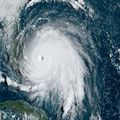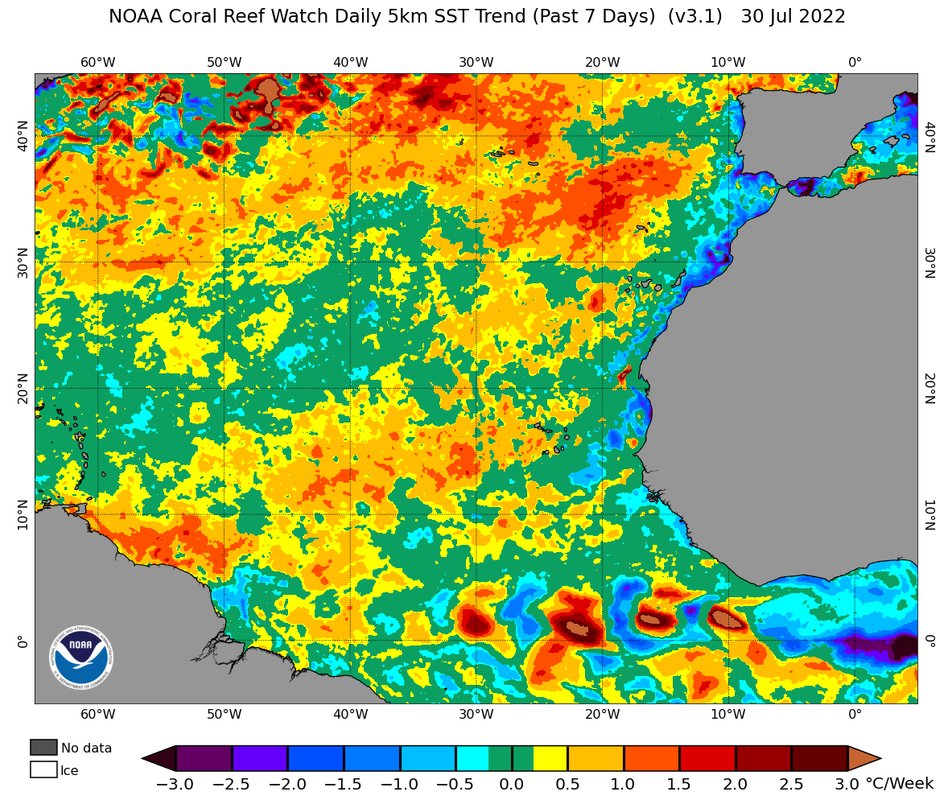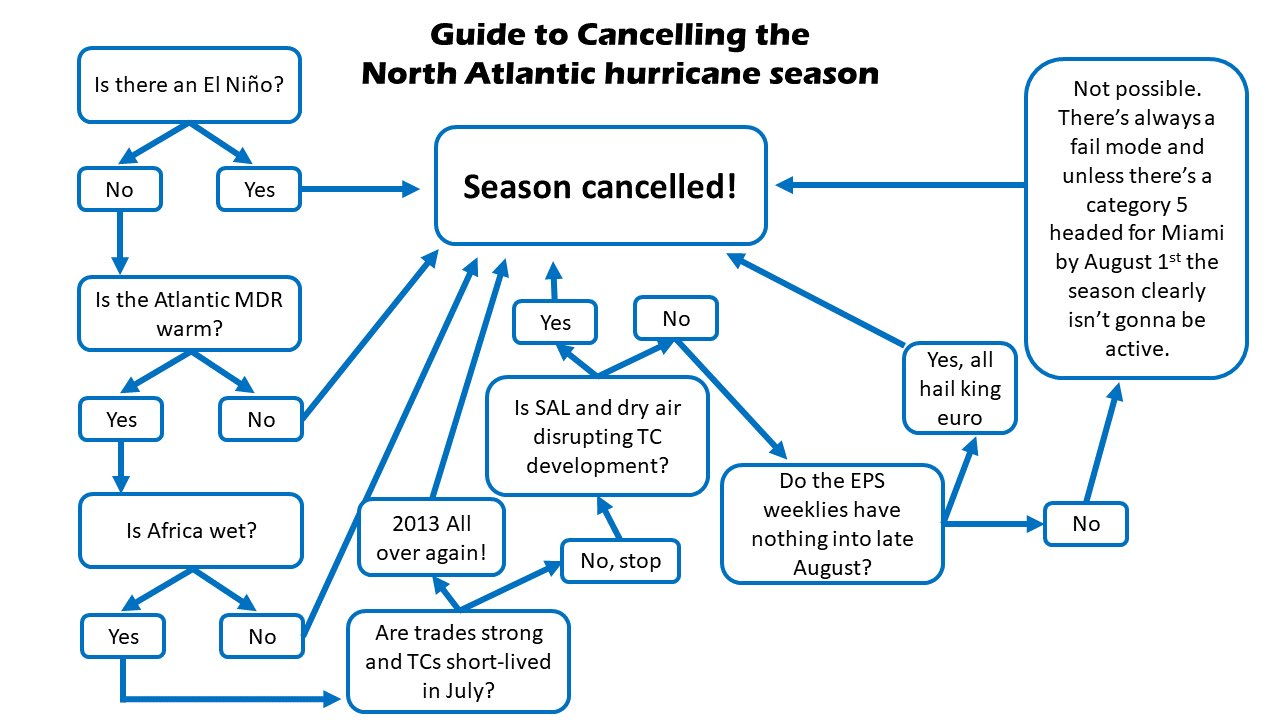#2327 Postby Category5Kaiju » Sun Jul 31, 2022 2:17 pm
Ok, so let's take a step back and ask ourselves what is happening right now.
Yes, there is talk of a bust for this season considering the models are not showing much for the next weeks or so, with this wave-breaking thing also being a big buzz on wx social media. But again, it's late July. If we were in September, then that's a different story. But we are not. How many times in the past have we seen the Atlantic spring to action within even merely days, especially in late August? The switch flip is very real, and it can be very sudden as well. Anyhow, I would also like to point out that speculations of a bust as of now are primarily contingent on models, and it also does not help that the Euro and GFS have two radically different ideas on what could happen going forward. Furthermore, as we have seen in recent years like 2017, 2019, and 2021, dry mid-level air like this at summer's end can really be a false alarm for a bust, considering how it typically ends going into August. As of now, there's nothing about this that strikes me as especially odd; in fact, the overall tracker sentiment and conditions seem a lot like 2019.
I'd now like to shift focus to the wave-breaking/mid-level dry air phenomenon that we are seeing now. It is true that this kind of event was prevalent in 2013, and in that sense, sure, I guess? 2022 is like 2013? Then again, 2013 was a totally different year compared to this year in many aspects, and considering things like us having a true La Nina in place, a warmer than subtropics MDR sst anomalies, a robust THC with above average ocean salinity, and a polar opposite WPAC/EPAC activity level pattern (EPAC does not seem to be having any issues with decent storms this early in the season, much unlike 2013), I still am not sure if comparing this season to one of the most extreme spectacles of the 21st century at this point in time is a sound argument to make. Let's face it, each season is different, and no two hurricane seasons are carbon copies of one another. It would be statistically mind-numbing to see 2022 pull off a 2013, considering how extreme that season was and how this year, we have warm MDR sst anomalies and a true La Nina in place, both of which are historically proven and known to be strong factors that favor an active Atlantic hurricane season. At least since 1995, every La Nina year that "underperformed" to a certain extent did so for tangible reasons; for example, 2007 featured a rather cool MDR and overall basin with a look that was very similar to a -AMO, while years such as 2000 and 2011 featured a warm but not impressively warm MDR. At least as of currently, the MDR has been warming very nicely, and there are regions of it that are close to or above +1 C. There's hardly anything that would suggest that this MDR warmth will plummet in the coming months, and the WAM should only help with it, or at least that's what I would assume.
My point here is, at this point in time, I am still not convinced that this dry air problem is going to be a seasonal detriment, especially how there are factors in place now (the La Nina and the warm MDR sst anomalies) that we did not see in 2013, and with these factors being historically (and strongly) correlated with decent Atlantic activity. In fact, I personally would be very curious to see how anomalously dry it is out there compared to some of our past seasons at this point in time, particularly years like 1998, 1999, and 2019 that were also snoozing as of now.
And if this season does underperform tremendously...then I think it would be safe to assume that future indicators are seriously going to need to undergo an overhaul, and wave-breaking/mid-level dry air intrusions may really need to be elevated in terms of how important their evaluations are for a season's potential. In fact, I would argue that given such strong signals otherwise, a 2022 bust would be even more confusing and head-scratching than 2013 itself.
6 likes
Unless explicitly stated, all info in my posts is based on my own opinions and observations. Tropical storms and hurricanes can be extremely dangerous. Refer to an accredited weather research agency or meteorologist if you need to make serious decisions regarding an approaching storm.














